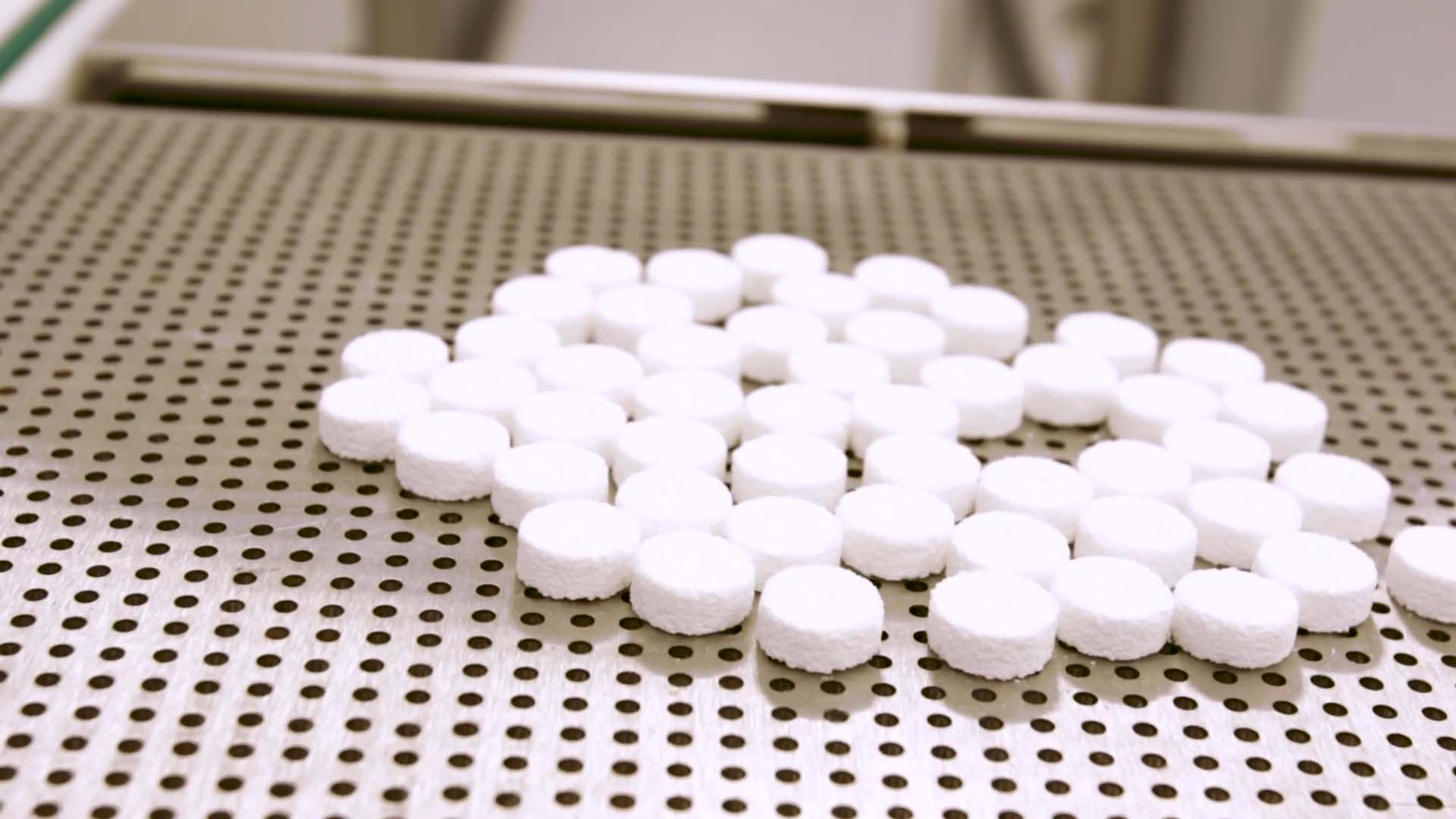Aprecia Pharmaceuticals, the company behind the first FDA approved 3D printed drug Spritam, has entered into a long-term collaboration with private non-profit research and development (R&D) firm, Battelle.
The partnership will expand Aprecia’s capabilities within 3D printed pharmaceuticals through increasing manufacturing throughput and efficiency, in addition to advancing its 3D printing equipment from clinical supply to commercial sale.
“Aprecia’s internal equipment design team and its current technology partners have established its global leadership in 3DP commercial scale manufacturing,” said Chris Gilmore, Aprecia CEO. “The Aprecia leadership team is highly optimistic about combining its years of 3DP experience with the innovation and engineering talents of Battelle.
“We believe this partnership will have long-term impact on Aprecia’s ability to solve medication design challenges that will offer significant benefits to patients across multiple therapeutic categories.”
Aprecia’s 3D printed pharmaceutical credentials
Aprecia was founded in 2003 with the aim of achieving commercial production for 3D printed pharmaceuticals, leveraging a liquid 3D printing technology originally developed at the Massachusetts Institute of Technology (MIT) in the 1980s. Aprecia adapted the technology to develop its own ZipDose process in 2007, which uses print fluids to bind layers of API-containing powders to form porous tablets in a conveyor belt-like system. The powder bed inkjet process is licensed from ZCorp, which is now a part of 3D Systems.
The porosity of Aprecia’s tablets enables them to be dissolved faster when taken with water than many conventionally-manufactured tablets, making them suitable for patients who suffer from swallowing difficulties and seizures. In 2015, Aprecia received FDA approval for its 3D printed Spiritam medication, making it the first 3D printed pharmaceutical to be approved by the FDA. The medication is designed to treat seizures in people with epilepsy and was approved for commercial manufacturing operations later that year.
In addition to its Spiritam product, Aprecia has also partnered with Cambridge-based Cycle Pharmaceuticals to produce orphan drugs for the treatment of rare medical conditions using the ZipDose process. Most recently, the firm announced a collaboration with Purdue University’s College of Pharmacy to advance the development of future 3D printed pharmaceutical equipment and medications.

Benefits of the Aprecia-Battelle partnership
Initially set up for the R&D of metals and material science, Battelle is now active across a wide range of fields, providing R&D services, technology commercialization, and laboratory management for customers. Since its establishment in 1929, Battelle has played a role in a number of significant technological developments, including nuclear fuel rods for nuclear reactors, armor plating for tanks, photovoltaic cells for solar panels, and the technology behind global print and digital document corporation, Xerox.
Through their newly-announced partnership, Battelle will aid Aprecia in advancing its 3D printing equipment from clinical supply to commercial scale, while improving manufacturing throughput and efficiency during all stages of the printing process.
“Additive manufacturing is expanding rapidly and across many industries,” said Sanj Pai, Vice President and General Manager of Battelle’s Health business. “Aprecia has invested the time and resources necessary to become the leader in 3DP pharmaceutical manufacturing. We envision great opportunities in leveraging Aprecia equipment platforms and intellectual property to best serve the pharmaceutical industry.”

3D printed pharmaceuticals
3D printed medicine is a rapidly developing field that has seen several new innovations since Aprecia launched Spiritam to the US market in 2016.
For instance, British 3D printed pharmaceutical firm FabRx announced it had developed personalized 3D printed chewable tablets for children with the rare metabolic disorder, maple syrup urine disease (MSUD) in September 2019. Since then, the company has launched its M3DIMAKER 3D printer for the manufacture of personalized drug delivery devices, and most recently designed its ‘Printlets’ with a Braille-patterned surface to aid medicine taking for the visually-impaired.
Meanwhile, in March last year global pharmaceutical firm Merck announced plans to work with EOS Group company, AMCM, to develop and produce 3D printed tablets for clinical trials, then later for commercial manufacturing.
Elsewhere, researchers at UCL 3D printed opioid tablets with alcohol-resistant and abuse-deterrent properties as a potential method in combating the ongoing global opioid abuse health crisis, while a Pakistani research team announced they had optimized the controllable dosage of antibiotics tablets using FDM 3D printing.
Subscribe to the 3D Printing Industry newsletter for the latest news in additive manufacturing. You can also stay connected by following us on Twitter and liking us on Facebook.
Be sure to subscribe to the Another Dimension podcast on your chosen podcast player to make sure you never miss an episode.
Looking for a career in additive manufacturing? Visit 3D Printing Jobs for a selection of roles in the industry.
Featured image shows Aprecia 3D printed pills. Photo via Aprecia Pharmaceuticals.



